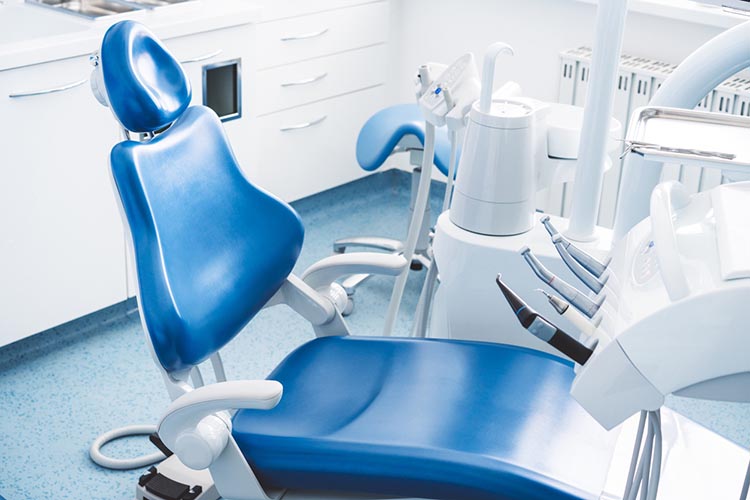Many of us grow up being told certain dental-related facts that simply are not true. You might even have preconceptions of what’s right and wrong concerning your dental health. By debunking some of these dental myths, you’ll be able to take a more proactive approach to your oral care to achieve a healthier, brighter smile.
1. Whiter Teeth are Healthier Teeth
If you’ve ever walked down the dental care aisle at your local supermarket or drugstore, all you see are bright, white smiles on pretty packaging and a myriad of different whitening products, including charcoal toothpaste! It’s easy to feel disappointed or concerned if your teeth aren’t that pearly shade of white, but it’s important to know that a naturally off-white smile is still healthy. In fact, over-whitening your teeth with over-the-counter treatments can be harmful if misused. If you do want that bright white smile, talk to your dentist about professional whitening treatments.
2. Sugar is What Causes Cavities
Sugar can and does contribute to tooth decay, but it’s certainly not the only thing that leads to cavities. As you consume sugar, bacteria inside your mouth feed off of these sugars and then produce waste. This waste can contribute to bad breath, tooth decay, and even gingivitis. However, if you’ve sworn off sugar as a way to prevent cavities, you’re not completely getting rid of the problem.
Poor oral hygiene and lack of professional dental care will always lead to tooth decay and other dental problems. Don’t assume you can forgo brushing and flossing just because you’re avoiding sugary foods and drinks. Proper at-home care and regular trips to the dentist are still your best defense against cavities.
3. The Harder You Brush, The Cleaner Your Teeth
If your partner can hear you aggressively brushing your teeth from the next room over, you’re probably brushing too hard. Brushing your teeth aggressively isn’t productive and won’t help in getting them any cleaner. Over-aggressive brushing can actually lead to gum recession and tooth sensitivity. Dentists recommend using a softer toothbrush to help prevent some of these issues. Also, consider purchasing an electronic toothbrush vs. a manual toothbrush.
4. Flossing Isn’t Really Necessary
You’re using a power toothbrush and a great-quality toothpaste and mouthwash, so why do you need to bother with flossing? The reason your dentist and hygienist are always telling you to floss is because it’s a vital part of good oral hygiene. Food particles and plaque can get lodged deep between your teeth. Even with the best brushing habits and toothpaste products, you still need to floss between your teeth to reach these areas. If you’re not a fan of string floss, consider using a water flosser device. You should aim to floss at least once a day, and making a habit of it will make the job a bit easier.
5. You Won’t Get Gum Disease if You Use Mouthwash
While mouthwash products might claim to kill all bacteria and prevent gingivitis and gum disease, you still need to keep your teeth healthy with routine brushing and flossing. It’s not uncommon for patients who are short on time to rinse with mouthwash before leaving the house in the morning rather than brushing their teeth. Mouthwash isn’t able to get rid of the sticky plaque that gets stuck on your teeth, which can only be removed with brushing and flossing.
6. Brushing Right Before Your Appointment Will Hide Signs of Neglect
The quality of your smile is a culmination of years of proper care and oral hygiene. Your dentist and hygienist definitely will know if you’re neglecting your teeth even if you brush and floss really well right before your appointment. For example, your gums may look red and irritated from months of neglect, and you may have deep stains, discoloration, and cavities that have formed as a result of improper brushing and flossing.
Assuming that your dentist won’t know you’re skipping on proper oral hygiene just because you brushed before your appointment is a lot like going to the gym to exercise only once before running a race. In other words, it’s going to be evident that you are not practicing regular at-home dental care.
7. You Don’t Need to See a Dentist if You Don’t Have Any Obvious Problems
A lot of dental problems aren’t going to be obvious until they get much worse. For example, you probably won’t be able to tell that you have a cavity until the decay gets so bad that it reaches the inner pulp, resulting in the need for a root canal. Gingivitis is another problem that is often ignored until it gets to the point of progressing to gum disease. By making time for regular bi-annual checkup visits, you’re taking a proactive step forward in your oral health and treating issues before they get worse.
8. Braces are Only for Kids
When most people think of braces, they picture a teenager wearing a mouth full of metal brackets and wiring. While traditional braces can still benefit many patients, there are other orthodontic options available that are great for patients of all ages. It’s never too late to achieve the smile you’ve always wanted. In addition to tradition metal braces, dental patients can look into ceramic braces, clear braces, and Invisalign to correct their dental misalignments.
Understanding these myths and how they can have a serious impact on your oral health is reason enough to make a change to your daily habits. The key to proper oral health is brushing and flossing daily while keeping up with regular dental visits. Routine dental exams help catch issues before they become a bigger problem and keep your smile healthy and strong.


